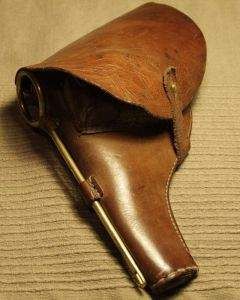Неизвестен Автор - Словарь американских идиом (8000 единиц)
Скачивание начинается... Если скачивание не началось автоматически, пожалуйста нажмите на эту ссылку.
Жалоба
Напишите нам, и мы в срочном порядке примем меры.
Описание книги "Словарь американских идиом (8000 единиц)"
Описание и краткое содержание "Словарь американских идиом (8000 единиц)" читать бесплатно онлайн.
[take charge] <v. phr.> To begin to lead or control; take control or responsibility; undertake the care or management (of persons or things). * /When Mrs. Jackson was in the hospital, her sister took charge of the Jackson children until Mrs. Jackson could care for them./ * /The child care class gave a party for the nursery children, and Mary took charge of the games./ * /John was elected the new president of the club and took charge at the next meeting./ * /Bob is a natural leader, and can take charge in an emergency./ Compare: IN CHARGE(2).
[take cold] See: CATCH COLD.
[take cover] <v. phr.> To seek shelter or protection. * /The rain began so suddenly that we had to take cover in a doorway./
[take down] <v.> 1. To write or record (what is said). * /I will tell you how to get to the place; you had better take it down./ 2. To pull to pieces; take apart. * /It will be a big job to take that tree down./ * /In the evening the campers put up a tent, and the next morning they took it down./ 3. <informal> To reduce the pride or spirit of; humble. * /Bob thought he was a good wrestler, but Henry took him down./ Syn.: TAKE DOWN A NOTCH.
[take down a notch] or [take down a peg] <v. phr.>, <informal> To make (someone) less proud or sure of himself. * /The team was feeling proud of its record, but last week the boys were taken down a peg by a bad defeat./
[take effect] <v. phr.> 1. To have an unexpected or intended result; cause a change. * /It was nearly an hour before the sleeping pill took effect./ 2. To become lawfully right, or operative. * /The new tax law will not take effect until January./
[take exception to] <v. phr.> To speak against; find fault with; be displeased or angered by; criticize. * /There was nothing in the speech that you could take exception to./ * /Did she take exception to my remarks about her cooking./
[take five] <v. phr.> To take a five-minute break during some work or theatrical rehearsal. * /"All right, everyone," the director cried. "Let's take five."/
[take for] <v.> To suppose to be; mistake for. * /Do you take me for a fool?/ * /At first sight you would take him for a football player, not a poet./
[take for a ride] <v. phr.>, <slang> 1. To take out in a car intending to murder. * /The gang leader decided that the informer must be taken for a ride./ 2. To play a trick on; fool. * /The girls told Linda that a movie star was visiting the school, but she did not believe them; she thought they were taking her for a ride./ Compare: STRING ALONG. 3. To take unfair advantage of; fool for your own gain. * /His girlfriend really took him for a ride before he stopped dating her./
[take for granted] <v. phr.> 1. To suppose or understand to be true. * /Mr. Harper took for granted that the invitation included his wife./ * /A teacher cannot take it for granted that students always do their homework./ Compare: BEG THE QUESTION. 2. To accept or become used to (something) without noticing especially or saying anything. * /George took for granted all that his parents did for him./ * /No girl likes to have her boyfriend take her for granted; instead, he should always try to make her like him better./
[take French leave] <v. phr.> To leave secretly; abscond. * /The party was so boring that we decided to take French leave./ * /While the Smith family was in Europe, the house-sitter packed up all the silver and took French leave./ See: SLIP AWAY.
[take heart] <v. phr.> To be encouraged; feel braver and want to try. * /The men took heart from their leader's words and went on to win the battle./ * /When we are in trouble we can take heart from the fact that things often seem worse than they are./ Contrast: LOSE HEART.
[take heed] <v. phr.>, <literary> To pay attention; watch or listen carefully; notice. * /Take heed not to spill coffee on the rug./
[take hold of] <v. phr.> To grasp. * /The old man tried to keep himself from falling down the stairs, but there was no railing to take hold of./
[take ill] or [take sick] <v.> To become sick. * /Father took sick just before his birthday./ - Used in the passive with the same meaning. * /The man was taken ill on the train./
[take in] <v.> 1. To include. * /The country's boundaries were changed to fake in a piece of land beyond the river./ * /The class of mammals takes in nearly all warm-blooded animals except the birds./ 2. To go and see; visit. * /The students decided to take in a movie while they were in town./ * /We planned to take in Niagara Palls and Yellowstone Park on our trip./ 3. To make smaller. * /This waistband is too big; it must be taken in about an inch./ * /They had to take in some sail to keep the ship from turning over in the storm./ 4. To grasp with the mind; understand. * /He didn't take in what he read because his mind was on something else./ * /He took in the situation at a glance./ 5a. To deceive; cheat; fool. * /The teacher was taken in by the boy's innocent manner./ Compare: PUT OVER, ROPE IN. 5b. To accept without question; believe. * /The magician did many tricks, and the children took it all in./ 6a. To receive; get. * /The senior class held a dance to make money and took in over a hundred dollars./ 6b. Let come in; admit. * /The farmer took in the lost travelers for the night./ * /When her husband died, Mrs. Smith took in boarders./ 7. To see or hear with interest; pay close attention to, * /When Bill told about his adventures, the other boys took it all in./
[take in stride] <v. phr.> To meet happenings without too much surprise; accept good or bad luck and go on. * /He learned to take disappointments in stride./
[take in tow] <v. phr.> To take charge of; lead; conduct. * /Brian and Kate took a group of children in tow when they went to see the circus./
[take into account] <v. phr.> To remember and understand while judging someone or something; consider. * /How much time will we need to get to the lake? You have to take the bad road into account./ * /His acting in the play was remarkable, taking into account his youth and inexperience./ Syn.: RECKON WITH. Contrast: LEAVE OUT OF ACCOUNT.
[take issue with] <v. phr.> To be openly against; speak against; disagree with. * /He thought his boss was wrong but was afraid to take issue with him on the matter./
[take it] <v. phr.> 1. To get an idea or impression; understand from what is said or done. - Usually used with "I". * /I take it from your silence that you don't want to go./ 2. <informal> To bear trouble, hard work, criticism; not give up or weaken. * /Henry could criticize and tease other boys, but he couldn't take it himself./ * /Bob lost his job and his girl in the same week, and we all admired the way he took it./
[take it all in] <v. phr.> To absorb completely; listen attentively. * /Bill's piano music filled the room and we took it all in with admiration./
[take it away] <v. phr.>, <informal>, <Theatrical expression> You're on; it's your turn; you're next. * /And here comes that wonderful comedian, Bob Hope. The announcer said, "Take it away. Bob."/
[take it easy] <v. phr.>, <informal> 1. or [go easy] or [take things easy] To go or act slowly, carefully, and gently. - Often used with "on". * /Take it easy. The roads are icy./ * /"Go easy," said Billy to the other boys carrying the table down the stairs./ * /"Take it easy on John and don't scold him too much," said Mrs. Jones to Mr. Jones./ * /Go easy on the cake. There isn't much left./ 2. or [take things easy] To avoid hard work or worry; have an easy time; live in comfort. * /The doctor said that Bob would have to take things easy for awhile after he had his tonsils out./ * /Barbara likes to take it easy./ * /Grandfather will retire from his job next year and take things easy./ * /Mr. Wilson has just made a lot of money and can take things easy now./
[take it from the top] <v. phr.>, <informal> <Musical and theatrical expression> To start again from the beginning. * /The conductor said, "We must try it once again. Take it from the top and watch my baton."/
[take it into one's head] or <informal> [take a notion] <v. phr.> To get a sudden idea; decide without thinking. * /The boy suddenly took it into his head to leave school and get a job./ * /Grandmother keeps a bag packed so that she can go visiting whenever she takes a notion./
[take it on the chin] <v. phr.>, <informal> 1. To be badly beaten or hurt. * /Our football team really took it on the chin today. They are all bumps and bruises./ * /Mother and I took it on the chin in the card game./ 2. To accept without complaint something bad that happens to you; accept trouble or defeat calmly. * /A good football player can take it on the chin when his team loses./
[take it or leave it] <v. phr.>, <informal> To accept something without change or refuse it; decide yes or no. - Often used like a command. * /He said the price of the house was $10,000, take it or leave it./
[take it out on] <v. phr.>, <informal> To be unpleasant or unkind to (someone) because you are angry or upset; get rid of upset feelings by being mean to. - Often used with the name of the feeling instead of "it." * /The teacher was angry and took it out on the class./ * /Bob was angry because Father would not let him use the car, and he took it out on his little brother./
[take its toll] <v. phr.> To cause loss or damage. * /The bombs had taken their toll on the little town./ * /The budget cut took its toll of teachers./
[take kindly to] <v.> To be pleased by; like. - Usually used in negative, interrogative, and conditional sentences. * /He doesn't take kindly to any suggestions about running his business./ * /Will your father take kindly to the idea of your leaving college?/
[take leave of] <v. phr.> I. To abandon, go away from, or become separated from. - Usually used in the phrase "take leave of one's senses". * /Come down from the roof, Billy! Have you taken leave of your senses?/ 2. See: TAKE ONE'S LEAVE.
[take leave of one's senses] <v. phr.> To go mad; become crazy. * /"Have you taken leave of your senses? "Jake cried, when he saw Andy swallow a live goldfish./
[take liberties] <v. phr.> To act toward in too close or friendly a manner; use as you would use a close friend or something of your own. * /Mary would not let any boy take liberties with her./ * /Bill took liberties with Tom's bicycle./ Compare: MAKE FREE WITH.
[take lying down] <v. phr.> To accept something without defense or protest. * /If you take such insults lying down, you will only encourage more of the same./
[taken aback] also [taken back] <adj.> Unpleasantly surprised; suddenly puzzled or shocked. * /When he came to pay for his dinner he was taken aback to find that he had left his wallet at home./
[taken by] or [with] <v. phr.> To be impressed by; intrigued by. * /Ned was much taken by the elegance of Sophie's manners./
[take no stock in] See: TAKE STOCK IN.
[take note of] or [take notice of] <v. phr.> 1. To look carefully at; pay close attention to; observe well. * /A detective is trained to take note of people and things./ 2. To notice and act in response; pay attention. * /Two boys were talking together in the back of the room but the teacher took no notice of them./ * /The principal thanked everyone who helped in the program, and took note of the decorations made by the art class./
[take oath] <v. phr.> To promise to tell the truth or to do some task honestly, calling on God or some person or thing as a witness. * /Mary took her oath that she did not steal the watch./ * /John took oath that he would fill the office of president faithfully./
[takeoff] <n.> 1. Departure of an airplane; the act of becoming airborne. * /The nervous passenger was relieved that we had such a wonderfully smooth takeoff./ 2. Imitation; a parody. * /Vaughn Meader used to do a wonderful takeoff on President Kennedy's speech./
[take off] <v. phr.> 1a. To leave fast; depart suddenly; run away. * /The dog took off after a rabbit./ Compare: LIGHT OUT. 1b. <informal> To go away; leave. * /The six boys got into the car and took off for the drug store./ 2. To leave on a flight, begin going up. * /A helicopter is able to take off and land straight up or down./ 3. <informal> To imitate amusingly; copy another person's habitual actions or speech. * /He made a career of taking off famous people for nightclub audiences./ * /At the party, Charlie took off the principal and some of the teachers./ 4. To take (time) to be absent from work. * /When his wife was sick he took off from work./ * /Bill was tired out so he took the day off./
[take off one's hat to] <v. phr.> To give honor, praise, and respect to. * /He is my enemy, but I take off my hat to him for his courage./ Compare: HAND IT TO.
[take offense at] <v. phr.> To become indignant; become angry. * /Why do you always take offense at everything I say?/
[take off one's hands] <v. phr.> 1. To abdicate one's responsibility of a person or matter. * /"I am herewith taking my hand off your affairs," Lou's father said. "See how you succeed on your own."/ 2. To buy; relieve someone of something. * /He offered to take my old car off my hands for $350./
[take off the edge] See: TAKE THE EDGE OFF.
[take on] <v.> 1. To receive for carrying; be loaded with. * /A big ship was at the dock taking on automobiles in crates to carry overseas for sale./ * /The bus driver stopped at the curb to take the woman on./ 2. To begin to have (the look of); take (the appearance of). * /Others joined the fistfight until it took on the look of a riot./ * /After the students put up Christmas decorations, the classroom took on a holiday appearance./ 3a. To give a job to; hire; employ. * /The factory has opened and is beginning to take on new workers./ Contrast: LET GO(4), LET OFF, LET OUT(6). 3b. To accept in business or a contest. * /The big man took on two opponents at once./ * /After his father died, Bill took on the management of the factory./ * /We knew their football team was bigger and stronger, but we took them on anyway and beat them./ 4. <informal> To show great excitement, grief, or anger. * /At the news of her husband's death she took on like a madwoman./ Compare: CARRY-ON.
[take one at one's word] <v. phr.> To naively lend credence to what one tells one. * /It's a bad idea to take street vendors at their word in large, crowded cities./
[take one's breath away] <v. phr.> To surprise greatly; impress very much; leave speechless with surprise or wonder or delight; astonish. * /The sunset is so beautiful it takes our breath away./ * /His refusal was so unexpected it took my breath away./ Compare: CATCH ONE'S BREATH(1).
[take one's death of] See: CATCH ONE'S DEATH OF.
[take one's leave] or [take leave of] <v. phr.>, <formal> To say good-bye and leave. * /He stayed on after most of the guests had taken their leave./ * /The messenger bowed and took leave of the queen./ [leave-taking] <n.> The end of school in June is a time of leave-taking.
[take one's life in one's hands] <v. phr.> To face great danger or take great risk. * /Driving that car with those worn tires would be taking your life in your hands./ * /He took his life in his hands when he tried to capture the wild horse./
Подписывайтесь на наши страницы в социальных сетях.
Будьте в курсе последних книжных новинок, комментируйте, обсуждайте. Мы ждём Вас!
Похожие книги на "Словарь американских идиом (8000 единиц)"
Книги похожие на "Словарь американских идиом (8000 единиц)" читать онлайн или скачать бесплатно полные версии.
Мы рекомендуем Вам зарегистрироваться либо войти на сайт под своим именем.
Отзывы о "Неизвестен Автор - Словарь американских идиом (8000 единиц)"
Отзывы читателей о книге "Словарь американских идиом (8000 единиц)", комментарии и мнения людей о произведении.



















